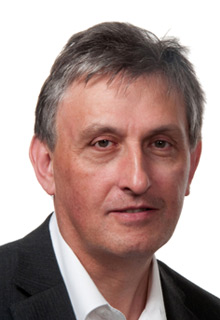Comment / Atlantic crossings
 It is one of the privileges of being HFMA president to attend the HFMA-US annual conference, this year in Orlando, Florida. The US annual national institute – ANI – is much like our own conference, bringing together the country’s healthcare finance profession – except that, with around 5,000 delegates over the four days, it rather feels like it has been supersized.
It is one of the privileges of being HFMA president to attend the HFMA-US annual conference, this year in Orlando, Florida. The US annual national institute – ANI – is much like our own conference, bringing together the country’s healthcare finance profession – except that, with around 5,000 delegates over the four days, it rather feels like it has been supersized.
It is not just scale that differentiates our countries. Healthcare structures and funding arrangements are fundamentally different too. But I will not be the first HFMA leader to have come back with a sense that we have more in common than is generally thought.
The US and the UK – alongside many other healthcare systems – face the same challenge of meeting rising demands without any real prospect of increased spending. In the US, the challenge must feel even more severe. US spend on healthcare stands at 17.5% of gross domestic product – that scale thing again – compared with about 10% here. Both healthcare systems also operate in highly politicised environments, albeit, it seems to an outsider, with a far greater degree of polarisation in the US.
But much common ground can be found in the increasing recognition of the need to create value. Defined in terms of outcomes over costs, value can be added by delivering the same outcomes for less cost, delivering better outcomes for the same or – the nirvana – delivering better outcomes for less.
Don Berwick, the healthcare safety expert now leading NHS work on harm reduction, followed up his appearance at our conference last December with a further presentation at ANI. He again spoke with powerful humility. He reinforced his view – first articulated at the Institute for Healthcare Improvement – that the triple aim of delivering better care, improved health and lower cost is achievable in practice. In short, his argument is that new business models are needed for a new era.
Transformation of healthcare is on everyone’s lips. But the US has started to move beyond the talking stage – at least in patches. We heard examples of new business models being introduced at pace, with payers and providers agreeing new ways of working to create value. Blue Cross Blue Shield’s patient-centred medical home project to provide more integrated care has had impressive results in terms of reduced admissions and A&E visits, for example.
There are clear characteristics to these transformations: a recognition that change is tough; the importance of cooperation on a new set of shared goals; and the value of harnessing new technology.
Those at the vanguard of this in the US are those that didn’t wait to be told. Instead, they embraced the difficult journey at the first opportunity and are now reaping the rewards through releasing cost. There have been obstacles and lessons. Perhaps pertinently for the UK, given our review of payment systems, there was a realisation that payment mechanisms did not always create the environment for change.
In the UK, we still are at the start of our value-based journey. We need to start thinking differently and more collaboratively. Dr Berwick also talked of ‘a very special opportunity’ for healthcare finance professionals to contribute to the transformation process. They can pinpoint areas where waste could be eliminated, help measure delivery of improved value and ensure we have the right financial models to facilitate new ways of working.
As a profession, we all need to be able to articulate how we see change happening and then contribute to putting those principles into practice locally. It is very much a case of ‘over to us’.
|
Value in healthcare delivery A joint event organised by the HFMA and Monitor at the end of the summer will examine how organisations have improved efficiency and quality by focusing on value. The one-day event takes place in London on 12 September. For more details go to www.hfma.org.uk/events-and-conferences |
Related content
We are excited to bring you a fun packed Eastern Branch Conference in 2025 over three days.
This event is for those that will benefit from an overview of costing in the NHS or those new to costing and will cover why we cost and the processes.